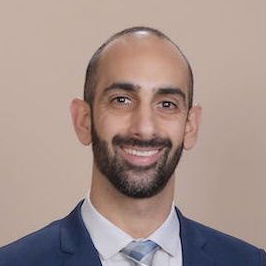Life and Disability Insurance: A Fellow's Primer

If you are anything like me, the thought of life and disability insurance is many things. Daunting? Yup. Confusing? Yes sir. You may be tempted to put your head in the sand and ignore it until you absolutely have to address it. Don't! Address it now and hopefully you will never need it – but if the time comes, you are covered.
Unsurprisingly, not many medical schools teach about life and disability insurance. I mean, heck, they do not even go over medical insurance. So, when the time came for me to look into it – or rather when my wife decided it was time to look into it – I did not even know where to start. Is it like car insurance? Kind of. Is it like medical insurance? Sort of. Why are there different types and what do they mean? Well, let's take a closer look and hopefully we can have a better understanding of each.
Disability Insurance

Disability insurance provides a portion of your income if you are unable to work and receive income due to a qualifying disability. If you need to work to support yourself or your family financially, then you need to consider it. An estimated 25% of 20-year-olds will experience some form of disability for 90 days or more before they reach retirement age, and a Nielsen survey from 2015 found that 1 in 4 people making more than $150,000 are living paycheck to paycheck. If anything leaves you unable to perform the duties you rely on for income, then you need a back-up plan, and that is where disability insurance comes in handy. I am reminded of one interventional cardiology attending who was unable to perform any catheterizations after falling asleep on a plane and waking up with a devastating case of radial nerve palsy. Fortunately, he had disability insurance and was able to recover without losing sleep about meeting his financial obligations.
So, what exactly does "disabled" mean? This is where it is important to be specific. An electrophysiologist can read echos, perform stress tests and do other general cardiology procedures, but where they make their income (generally) is by doing electrophysiology-specific procedures. When considering a disability insurance policy, it is important to ensure the wording for disability states that you cannot work in your chosen specialty or occupation.
How much disability will pay you depends on whether you opt for short or long term, and really is dependent on the type of policy you purchase. Generally, short-term disability insurance, which normally covers disability ranging from 3-6 months, covers around 60-70% of your salary, while long-term disability insurance, usually lasting several years or longer, will cover 40-60% of your salary. Now, these numbers are averages and can vary widely. Coverage of longer disability periods or higher salary percentages will generally be more expensive. Expect to pay anywhere from 1-3% of your income on a disability policy and ask your future employer if they provide any disability coverage (oftentimes they will cover short term disability). For more information, check out this article and this one for succinct information on the most important aspects of finding a disability insurance policy.
The best time to get disability insurance is immediately before you become disabled. Since no one knows when that will be, the second best time is now. The younger and the healthier you are, the cheaper the premium is for a similar policy. For Fellows in Training, there are still a lot of variables that go into what we will be doing once graduated, which leads to a lot of questions. For starters, we all expect our incomes to dramatically increase once we are attendings – will a policy we buy as fellows be sufficient once we are attendings? The short answer is generally no. However, this can be accounted for by adding what is called a "future increase option" rider. With this rider, you can increase your coverage as your income and budget allow. Another option would be to cancel your policy and buy a new one which reflects the amount you want covered, understanding that no one knows what tomorrow holds and we may not be as healthy when we buy that second policy as we are today.
Secondly, a large percentage of fellows will not be practicing in the state where they are training. Unfortunately, for various reasons, the price of a disability premium is dependent on the state it is purchased in. Fortunately, these policies are mostly transferrable (though you should always confirm when purchasing a policy). So, if you are training in a state with high disability insurance premiums such as California or Florida, you may want to wait if you will be starting practice in a state that offers lower premiums, and vice-versa. Many of us will pursue procedural-based subspecialties in cardiology such as electrophysiology and interventional cardiology. You do not necessarily need to wait until you start your advanced fellowship to obtain a policy. As alluded to earlier, the wording for what is considered "disabled" is incredibly important and you want the broadest definition of disability.

Life Insurance
Life insurance is a bit more straightforward: you pay a monthly premium and the insurance company provides your beneficiaries a "death benefit." Let's not beat around the bush – "death benefit" is pretty morbid, but if you have family that relies on your income then you need to consider life insurance. First, you need to consider what the financial consequences are and what that means to you. For some it might mean that they want to have the funeral and any medical bills covered, for others they might want a policy large enough to ensure their spouse would not need to go back work. A general rule is to multiply your income by 10-12 to get to the total amount you would need. There are also calculators ( and this one) to help you find that number, or you can use the DIME method, which takes into account your debt, income, mortgage and expenses to come up with an amount of coverage.
The two main types (of many ) are term and whole life insurance. Term life insurance lasts a set number of years (a term) before ending and pays if death occurs during the term of the policy. Whole life insurance lasts the life of the policy holder and pays once the policy holder dies. While most advisors would recommend term life insurance, the ultimate decision is up to you and they each have their own benefits and limitations.
The benefit of life insurance for us fellows is that we get it at a relative discount. As we age, we are more likely to develop health problems, which can increase the premiums or disqualify applicants altogether. The longer we wait, the higher the premiums for similar policies. It is not unreasonable that fellows can get bogged down with training, finding a job, starting families, rent/mortgages, car payments, etc., and would want to put this off. Just know that the more you wait the more you may end up paying once you do get a policy.
How to Go About Getting a Policy
You can always get quotes online after you have decided how much you think you will need. Or you can go through insurance salesmen (or a financial planner) who act as gatekeepers of these policies and can be great resources for more information. However, as with anything, finding a good one is essential. Your family and friends are always a great resource if they have used one who they would recommend. Otherwise, a physician finance blog has a list of insurance salesmen who cater to physicians, have been vetted by other physicians and can help you navigate the various policy options.
There is a ton more information on disability and life insurance out there, but I hope this has served as a brief primer to these often-intimidating topics. Like anything, once you take some time to educate yourself, you will find it is not as daunting as you expected. Arm yourself with information and you will be able to make the most informed and best decision for you and your family.

